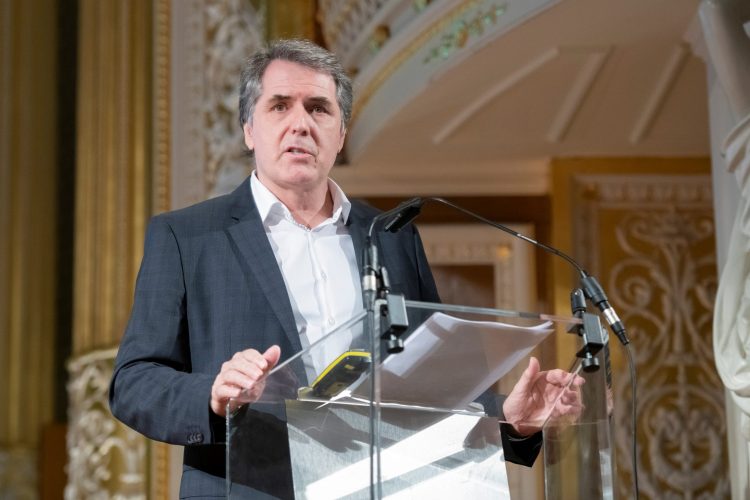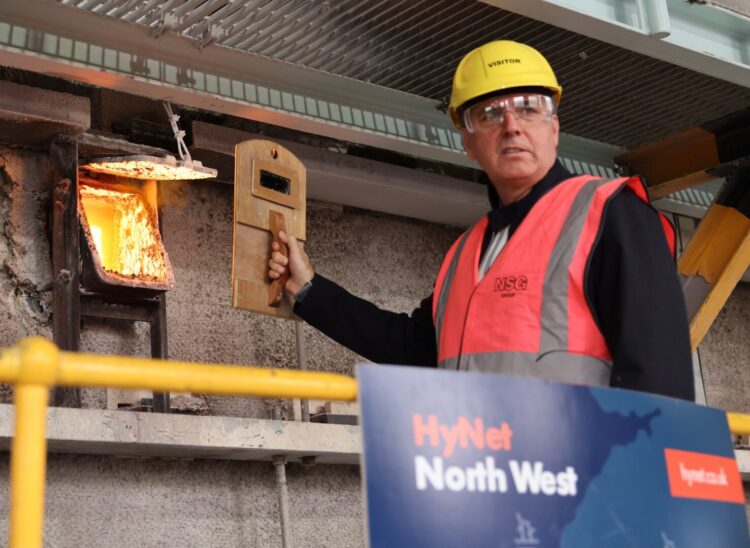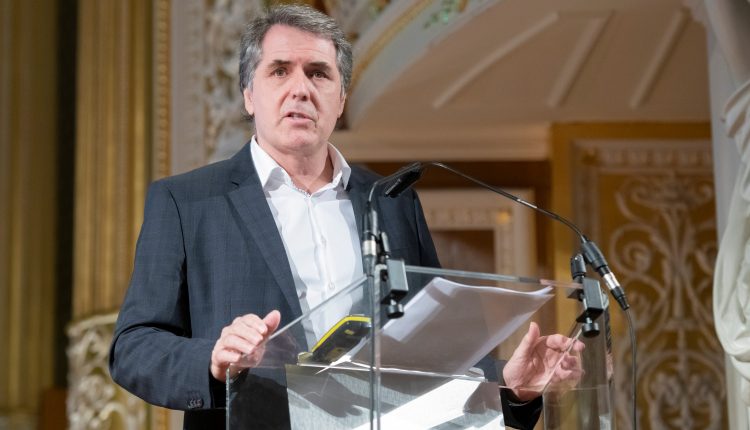Metro Mayor Steve Rotheram is committing Liverpool city region to invest 5% of its annual economic output into research and development – almost double the Government’s UK target. Tony McDonough reports

Metro Mayor Steve Rotheram says the Liverpool city region can add an extra £41.7bn to the value of its economy between now and 2030 by investing heavily in research and development (R&D).
Liverpool city region’s GVA (a measure of all the goods and services produced annually) currently stands at £32bn. Mr Rotheram is proposing the equivalent of 5% of the annual GVA figure should be spent on R&D.
Launched in Parliament on Monday, his plan would focus on building on the city region’s already world-leading expertise in infection control, materials chemistry and artificial intelligence (AI).
Mr Rotheram claims the 5% commitment – almost double that proposed for the whole of the UK by the Government – would add an estimated £41.7bn to the city region’s economy and create 44,000 jobs by 2030 as well as increasing productivity by around 10%.
In particular, the Mayor referred to two multi-billion pound schemes – the Mersey Tidal Power project, which aims to generate emissions-free power for 100 years from the tides of River Mersey, and HyNet which is getting ready to supply hydrogen to factories and public transport across the North West.
READ MORE: Mersey tides could provide 7% of UK energy
READ MORE: Can hydrogen deliver net zero
His plan, of course, does depend on persuading Whitehall to invest large sums of money into the Liverpool city region, as well as attracting private sector investment. While HyNet has been successful in securing Government funding, there are still question marks over whether the tidal scheme will become a reality.
Launching his Innovation Prospectus, Mr Rotheram said: “For as long as we have existed, people and businesses from the Liverpool city region have been inspiring and changing the world. It’s fair to say that innovation is in our DNA.
“But I don’t want us just to dine out on our past. I am determined to make our region the country’s innovation engine and to make that happen, we will be investing 5% of our GVA in research and development over the next few years.
“I want to take advantage of our strengths – and potential – and turn them into profitable businesses, creating better, greener jobs and bringing greater prosperity to local people.”
In the five years before the pandemic, the city region attracted £2bn of innovation investment and currently has a further £1bn of projects underway. The UK’s first regional Innovation Board, a series of ground-breaking support schemes, and unique partnerships between industry and researchers have enabled innovation to thrive.

Dr Jon Hague, Liverpool City Region Innovation Board chair and vice president Science and Technology, Unilever Homecare, added: “As chair of the Innovation Board it is a privilege to be constantly reminded of the brilliance and talent this city region has to offer.
“With its exciting mix of distinctive world-leading assets and capabilities, public and private partnership and forward-thinking leadership, the Liverpool city region is fertile territory for people wanting to turn big inventions and ideas into flourishing businesses.
“With sustained, large-scale investment we can deliver even more world-leading innovation that will fuel UK PLC’s bottom line – as well as fuelling our industry with green, sustainable energy and changing the world for the better.
From creating robot chemists to transforming patient care at the innovation ‘bat-cave’ under Alder Hey Children’s Hospital, the city region boasts a long list of eye-catching innovation projects that are already changing lives and helping tackle the climate emergency. These include:
- iiCON: a flagship infection control consortium led by the world-leading Liverpool School of Tropical Medicine that hit its UKRI 5-year investment target in the first 12 months
- Materials Innovation Factory: the product of a unique partnership between the University of Liverpool and Unilever, the MIF is pushing boundaries in AI and robot-assisted discovery and design of materials.
- Hartree National Centre for Digital Innovation (HNCDI): based at the Sci-Tech Daresbury campus near Runcorn, the collaboration between the Science and Technology Facilities Council and IBM is using AI and quantum computing to discover and develop solutions to problems raised by UK industry.
- Glass Futures: a globally unique industry/research partnership based in St Helens, the home of glass, making massive strides in decarbonising glass production.
- HyNet: one of two hydrogen production and carbon capture clusters chosen by the government for further development. As part of the scheme, hydrogen has recently been trialled to power industrial processes in two world fuel-switching firsts – at Pilkington and Unilever in the Liverpool city region.

